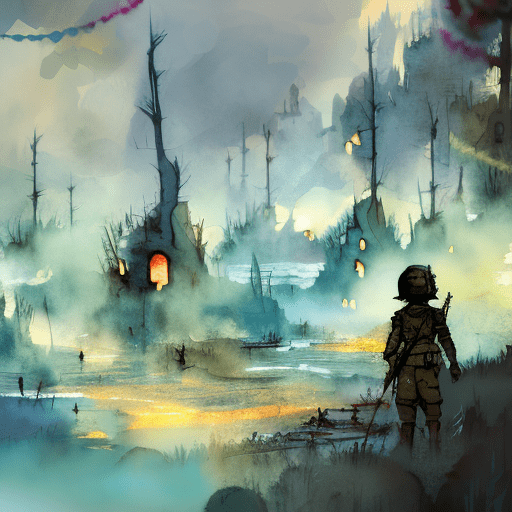One-line Summary:
Small Country is a poignant coming-of-age story set in Burundi, exploring themes of identity, love, and the devastating impact of war.
Childhood Innocence Shattered by Conflict
In Gael Faye’s debut novel, Small Country, we are transported to the vibrant and tumultuous world of Burundi in the 1990s. The story is narrated by Gabriel, a ten-year-old boy of mixed French and Rwandan heritage, who leads a carefree life in an affluent neighborhood. Gabriel’s days are filled with adventures alongside his friends, playing soccer, and enjoying the simple pleasures of childhood. However, as tensions rise between the Hutus and Tutsis, Gabriel’s idyllic world is shattered by the outbreak of civil war.
As the violence escalates, Gabriel’s father, a French expatriate, decides to leave the country, leaving Gabriel and his mother behind. The once harmonious neighborhood becomes a war zone, with gunfire and fear permeating the air. Gabriel’s innocence is stripped away as he witnesses the atrocities committed by both sides of the conflict. The novel powerfully captures the confusion, fear, and loss experienced by Gabriel and his community, as they struggle to comprehend the senseless violence that engulfs their lives.
An Exploration of Identity and Belonging
Small Country delves into the complex themes of identity and belonging through Gabriel’s personal journey. As a child of mixed heritage, Gabriel grapples with his sense of self and where he truly belongs. He feels a deep connection to both his French and Rwandan roots, yet also experiences a sense of displacement in both cultures. This internal conflict is further exacerbated by the war, which forces Gabriel to confront his own racial and cultural identity in the face of deep-seated prejudices.
Through Gabriel’s introspection, Faye explores the universal struggle of finding one’s place in the world and the impact of external forces on individual identity. Gabriel’s journey serves as a poignant reminder that our sense of self is not defined solely by our heritage, but also by the experiences and relationships that shape us.
The Power of Love and Resilience
Amidst the chaos and despair, Small Country also highlights the power of love and resilience in the face of adversity. Gabriel finds solace in his deep bond with his sister, Ana, and his unwavering friendship with his childhood companions. These relationships become a source of strength and hope, reminding Gabriel that even in the darkest of times, love and human connection can provide a glimmer of light.
As Gabriel navigates the complexities of war, he learns that resilience is not only about survival but also about finding the strength to rebuild and heal. Faye’s portrayal of the human spirit’s capacity to endure and find hope in the most challenging circumstances is both heart-wrenching and inspiring.
Key Takeaways:
- The devastating impact of war on innocent lives and the loss of childhood innocence.
- The struggle to find one’s identity and sense of belonging in a world torn apart by conflict.
- The power of love and resilience in overcoming adversity.
“We were children, but it was in wartime that I understood we children were just like everyone else, that we were not spared from the world’s violence because we were innocent, and that we shared the same fears as adults.”
Small Country is a poignant and beautifully written novel that explores the profound impact of war on a young boy’s life. Through Gabriel’s eyes, we witness the loss of innocence, the search for identity, and the enduring power of love and resilience. Faye’s evocative storytelling transports readers to a time and place filled with both beauty and brutality, leaving a lasting impression of the indomitable human spirit in the face of unimaginable adversity.












